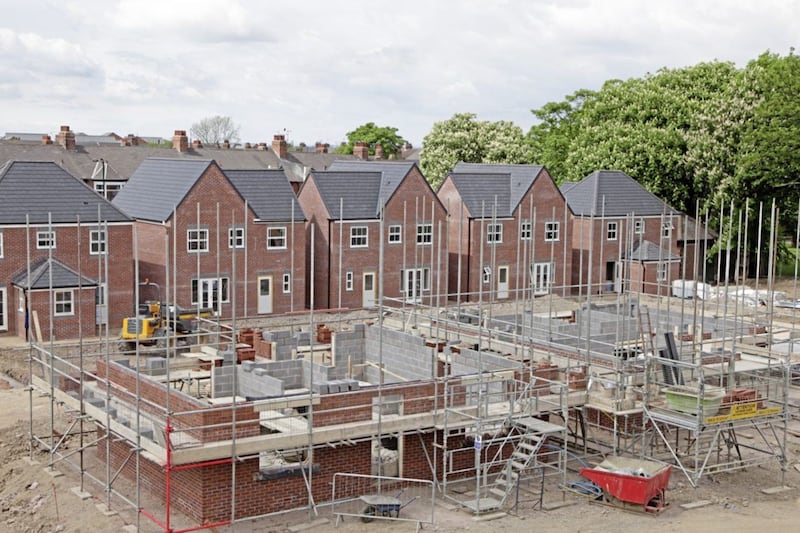THE government formation talks in Dublin have covered several key issues including housing, addressing the climate emergency and rebuilding the economy - issues which the Stormont Executive is also grappling with as we navigate through the Covid-19 pandemic.
In the past two months, housing associations have frequently been the first place to seek support for residents who have suffered hardship. Welfare advice and the broad range of assistance housing associations can provide to residents through this difficult time has shown the social housing model to be so much more than bricks and mortar.
Housing associations are determined to play our part in addressing each of these challenges.
And there has been some positive news for our sector in recent days, with the introduction of the housing bill via accelerated passage, which will enable housing associations to be reclassified out of the public sector.
Housing associations can continue to use private finance to effectively match government money pound for pound and build twice as many homes as would otherwise be possible. We will also be able to use Financial Transactions Capital (FTC) from Treasury to provide a greater range of affordable housing.
Passing this legislation was one of the commitments listed in the New Decade New Approach document. Another was the move to multi-year budgets across all departments.
From a housing perspective we believe now is the time to move to a multi-year programme for the Social Housing Development Programme (SHDP), as the need for social and affordable housing will increase as a result of the pandemic. Scotland works to a five year development programme and we believe that a similar approach for Northern Ireland makes sense.
Dealing with this pandemic has already led to some innovative thinking, such as the digital approach to public engagement on planning. A multi-year development programme will enable us to address various infrastructure challenges such as water and waste water capacity issues.
These did not materialise overnight and will take sustained investment over several years to resolve. It will also provide certainty to the wider construction industry which is so important to the regional economy.
Our research has shown that the construction of new homes as part of the SHDP has an economic multiplier effect of around £1 billion for the economy, when we include the impact on the wider construction industry and suppliers.
Our sector is focused on creating and maintaining resilient communities. This covers a range of activities including building new homes, as the provision of good quality housing is a key foundation for a healthy and happy society.
We also maintain them to ensure that they continue to provide safe and secure accommodation for those who live in them. We provide homes and support services for older people and those with complex needs. This saves the public purse by relieving pressure on other parts of the public sector.
We also offer pathways to ownership for those who aspire to it. Increasingly we are building mixed tenure schemes, which help to create more cohesive communities. At the same time, we are involved in helping to embed shared housing schemes across Northern Ireland, so that as a society we can move away from divided communities. This has to be done in a careful manner, in locations where there is a local demand.
But our work does not stop with the physical buildings. We also help to train and secure employment for our tenants and customers. This is part of our wider community investment work. We know that the quality of home which we live in, has a significant impact on our quality of life.
Providing housing and the support services associated with them, is the mission for our sector and we will continue to work with government, the construction industry and others to achieve it.
:: Ben Collins is chief executive of the Northern Ireland Federation of Housing Associations (NIFHA).









